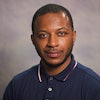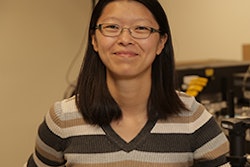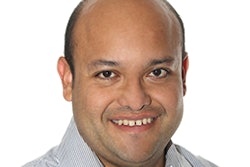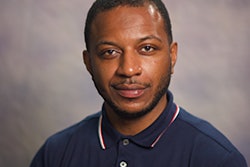Dr. Nichole Margarita Garcia’s groundbreaking research has largely been inspired by other feminist scholars of color like bell hooks and Gloria Anzaldua.
“Those foundational women of color feminists from the 1960s, ‘70s and ‘80s paved the way so that we can do this work,” says Garcia, an assistant professor of higher education at Rutgers University, New Brunswick. “I’ve always considered myself a Chicana Latina feminist, and it’s in my work.”
Garcia has found a way to do what so many scholars find difficult: to combine the personal with the theoretical, bringing her lived experiences to her scholarship, and, in doing so, inspiring a generation of younger scholars to do the same.
Her popular blog in Diverse has covered a wide range of topics including the challenges women of color like her face in the academy, such as being told that she doesn’t look like a professor. She insists that students call her “Dr. Garcia.”
“I make sure that I contextualize why I go by ‘Dr. Garcia’ and the historical implications of what that means,” says Garcia, who grew up in Salt Lake City and attended the University of Utah, where she carved out an interdisciplinary undergraduate degree in education with a concentration in Gendered Ethnic Studies.
“I met my first Chicana Ph.D. when I was 13,” Garcia remembers. Dr. Delores Delgado Bernal, currently a faculty member at California State University, Los Angeles, was on the faculty at the University of Utah at the time when Garcia was a student there. She had agreed to mentor her starting in high school and remains a guiding light to this day.
After graduating from the University of Utah, Garcia earned a master’s degree in Chicana and Chicano studies from the University of California, Santa Barbara and then a Ph.D. — completed in four years — at the University of California, Los Angeles [UCLA] where she wrote her dissertation, “Adelante y Pa’lante: College-Educated Chicana/o and Puerto Rican Family,” under the supervision of Dr. Daniel G. Solórzano.
“I knew I wanted to work with Danny and he was at UCLA,” she says, regarding her interdisciplinary focus and research. “It made sense that I go and work with the grandfather of critical race theory and microaggressions.”
It was also at UCLA that Garcia met her “academic father,” Dr. Tyrone Howard who proved to be a godsend during her time in graduate school. She served for two years as his research and teaching assistant.
“Tyrone was super supportive of everything,” she says. “We always had a really good bond and he looked out for me and any opportunities that he had. He always opened the door for me.”
After graduating in 2016, Garcia secured a postdoc at the University of Pennsylvania before being hired at Rutgers University, New Brunswick.
“They were so accepting of my research so I knew I wasn’t going to have barriers for the work that I wanted to do,” she says of her colleagues at Rutgers. “They embraced it from the onset.”
Garcia is currently working on a research project that looks at the displacement of Puerto Rican college students in the aftermath of Hurricane Maria. In addition to writing journal articles, she hopes to publish a book in the near future that chronicles the history of Puerto Ricans in higher education.
“Nichole’s work is important because it disrupts the deficit-based narratives around diverse learners, their homes, communities and everyday practices,” says Howard. “The sociological, cultural and educational implications of Nichole’s work are important in many ways where the experiences of Latino youth and other culturally diverse students are concerned.”
While Garcia loves her job, she is reminded that higher education in general still has a long way to go when it comes to equity and diversity.
Still, she now relishes the opportunity to serve as a mentor — particularly to students of color who sometimes express self-doubt, wrestle with imposter syndrome and wonder if they will ever complete their studies.
“You can do this,” she tells them.
“The aspiration,” she says, “is to never forget where I come from and to keep that humility and being humbled and appreciative of everyone that has given to me. And hopefully, I can do the same for others.”
Title: Assistant Professor of Higher Education, Rutgers University, New Brunswick
Education: Bachelor’s degree, University of Utah; Master’s degree, University of California, Santa Barbara; Ph.D., University of California, Los Angeles
Age: 31
Career mentors: Dr. Delores Delgado Bernal, Cal State Los Angeles; Dr. Tyrone Howard, UCLA; Dr. Daniel G. Solórzano, UCLA
Words of wisdom/advice for new faculty members: “This is a marathon, not a race. It’s going to have its challenges, but you will also find the rewards. The rewards are what keep you going and that can be a student coming into your office and saying, ‘Thank God you’re here.’”















